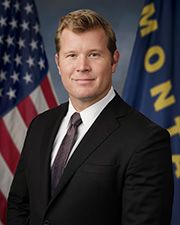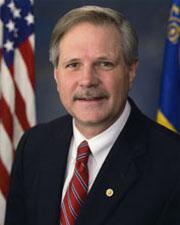0
A bill to require the Secretary of Homeland Security to fingerprint noncitizen minors entering the United States who are suspected of being victims of human trafficking, to require the Secretary to publicly disclose the number of such minors who are fingerprinted by U.S. Customs and Border Protection (CBP) officials and the number of child traffickers who are apprehended by CBP, to impose criminal penalties on noncitizen adults who use unrelated minors to gain entry into the United States, and for other purposes.
2/5/2025, 11:56 AM
Summary of Bill S 53
Additionally, the bill mandates that the Secretary publicly disclose the number of noncitizen minors who are fingerprinted by U.S. Customs and Border Protection officials, as well as the number of child traffickers who are apprehended by CBP. This transparency is meant to increase accountability and awareness of the extent of child trafficking at the border.
Furthermore, the bill imposes criminal penalties on noncitizen adults who use unrelated minors to gain entry into the United States. This provision is aimed at deterring individuals from exploiting children for their own gain and holding them accountable for their actions. Overall, Bill 119 s 53 seeks to strengthen protections for noncitizen minors who may be victims of human trafficking, increase enforcement efforts against child traffickers, and prevent the exploitation of children for immigration purposes.
Congressional Summary of S 53
Preventing the Recycling of Immigrants is Necessary for Trafficking Suspension Act or the PRINTS Act
This bill addresses migrant minor children entering the United States. Specifically, the bill makes it a crime for a person to knowingly use a minor to gain entry to the United States if the minor is not a close relative or if the person is not the minor’s guardian. In addition, U.S. Customs and Border Protection (CBP) must fingerprint all non-U.S. nationals (aliens under federal law) entering the United States who are younger than 14 years of age if a CBP officer suspects that the child is victim of human trafficking.
The Department of Homeland Security (DHS) must share with the Department of Health and Human Services (HHS) any fingerprints collected under this bill from an unaccompanied child if that child is transferred to HHS custody.
DHS must report to Congress on the number of children fingerprinted annually under this bill. DHS must also publish on a monthly basis the number of individuals apprehended for falsely claiming a child accompanying them into the United States was a close relative.
Current Status of Bill S 53
Bipartisan Support of Bill S 53
Total Number of Sponsors
4Democrat Sponsors
0Republican Sponsors
4Unaffiliated Sponsors
0Total Number of Cosponsors
28Democrat Cosponsors
0Republican Cosponsors
28Unaffiliated Cosponsors
0Policy Area and Potential Impact of Bill S 53
Primary Policy Focus
Alternate Title(s) of Bill S 53
Comments

Harold Crowder
10 months ago
I don't agree with this bill. It's unfair to treat noncitizen minors as suspects of human trafficking without proper evidence. It could lead to innocent children being wrongly accused and fingerprinted. Plus, criminalizing adults who bring unrelated minors into the country is extreme. There has to be a better way to address human trafficking without violating the rights of innocent individuals. #UnitedStatesSBill53Fact: This bill could have unintended consequences for vulnerable children seeking safety in the US.





